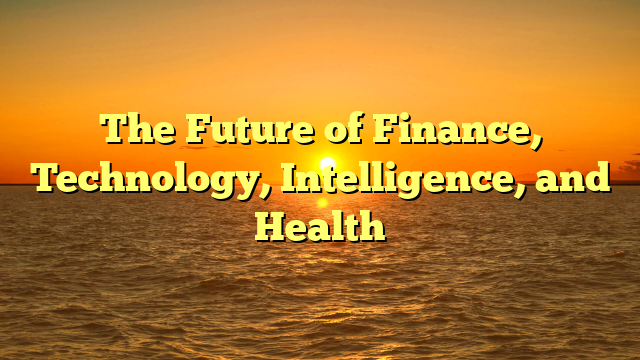Introduction
In today’s fast-paced world, economics, technology, AI, and well-being are becoming more intertwined than ever before. These domains are no longer separate entities; instead, they are influencing one another, leading to new opportunities, challenges, and solutions.
—
1. The Role of Technology in Shaping Finance
Technology’s influence on finance is undeniable, as it has reshaped the financial landscape in multiple ways. From the advent of blockchain to the rise of mobile banking, technology are playing an essential role in enhancing financial services, improving accessibility, and optimizing decision-making processes. One major example is the use of AI-driven algorithms in stock trading and portfolio management, which allow for faster and more accurate predictions.
Moreover, the emergence of digital currencies such as Bitcoin has brought forth a new era in finance, challenging traditional banking systems.
—
2. Artificial Intelligence and Its Impact on Financial Services
The adoption of AI in financial services is changing the traditional banking model in profound ways. AI algorithms are used for everything from fraud detection to customer service chatbots. Fraud detection has become much more sophisticated with AI, as the algorithms can flag suspicious transactions in real-time.
Additionally, AI is powering robo-advisors, which provide automated, algorithm-driven financial planning services with minimal human supervision. mlb 168 are making financial advice more accessible and affordable for the general public.
—
3. Intelligence and Decision-Making in Finance
The role of intelligence, particularly artificial intelligence, extends beyond automation. Financial decisions are often complex and need to consider a variety of factors, including market trends, consumer behavior, and geopolitical events. AI’s ability to process and analyze vast amounts of data allows for more informed and timely decisions.
Moreover, intelligent systems can optimize the allocation of resources within financial portfolios, ensuring maximum returns while managing risk. By continuously learning from data inputs, AI systems can adjust financial strategies to changing market conditions.
—
4. The Integration of Health and Finance: A Growing Trend
Health and finance are becoming closely interconnected, particularly in the context of rising medical expenses. Health insurance, medical expenses, and long-term care are financial burdens that affect millions of people worldwide. With the help of digital technology, managing healthcare costs has become more efficient.
Telemedicine and remote health monitoring are examples of innovations that are not only improving patient outcomes but also reducing costs.
—
5. Technology’s Role in Improving Health Outcomes
The healthcare industry is being reshaped by technological advancements, particularly in diagnostics and patient care. Artificial intelligence, machine learning, and big data analytics are being used to detect diseases early, personalize treatments, and predict patient outcomes. AI-powered diagnostic tools can now detect conditions like cancer at an earlier stage, significantly improving survival rates.
Furthermore, wearable technology and health apps are empowering individuals to take control of their health. Fitness trackers and health-monitoring apps allow users to track their physical activity, sleep patterns, and vital signs.
—
6. Intelligence in Health: The Rise of AI and Data in Healthcare
Artificial intelligence is also playing a crucial role in the health sector, particularly in medical research and clinical care. AI systems can assist doctors in diagnosing diseases, personalizing treatments, and managing chronic conditions. AI tools are also speeding up the research and development of new drugs and treatments.
Moreover, AI-driven health technologies are improving patient care by reducing human error and enhancing the efficiency of medical procedures. For example, AI-assisted surgeries allow for more precise operations, minimizing risks and recovery times.
—
Conclusion
The intersection of finance, technology, artificial intelligence, and health is not just a trend; it’s a new way of living, working, and managing our personal and collective futures. The potential of these innovations will continue to unfold in the coming years, making it an exciting time to witness these fields merge for greater benefits.
Exploring the Convergence of Finance, Technology, Intelligence, and Health



